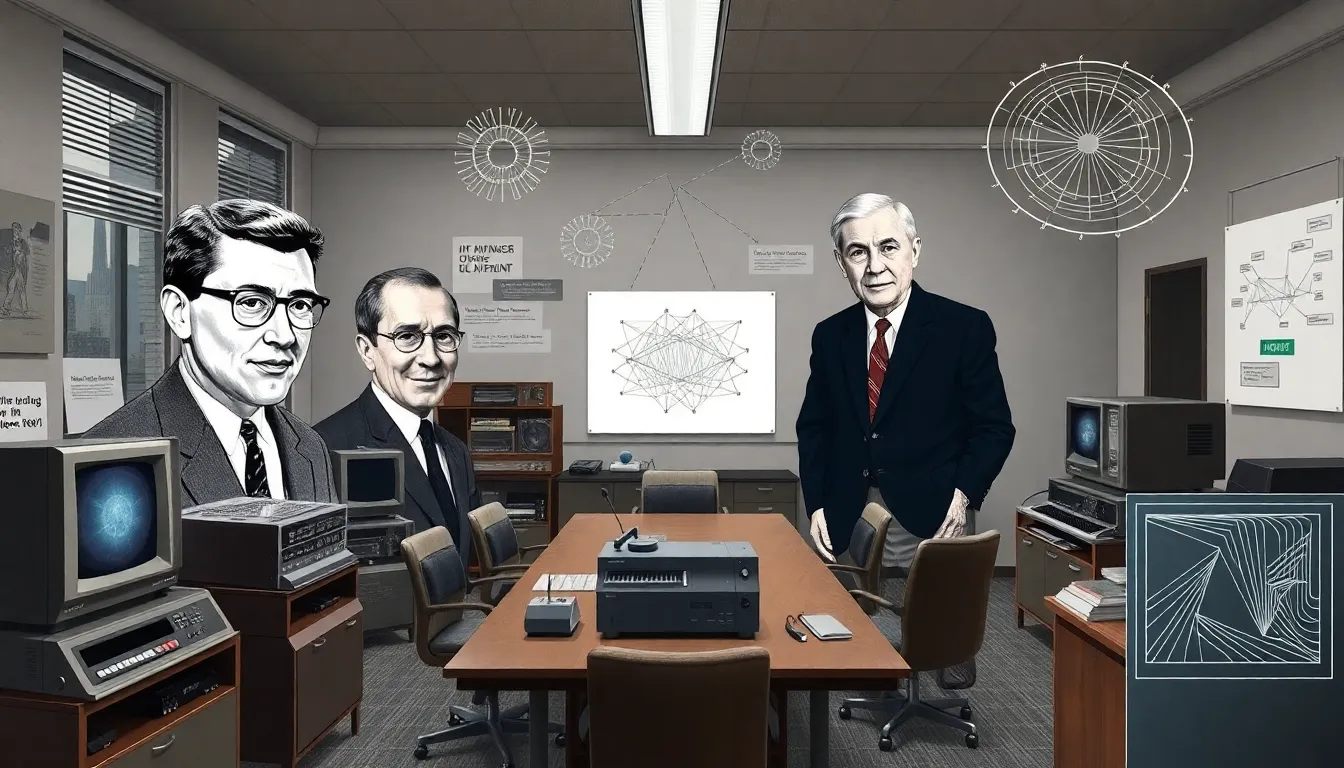Artificial Intelligence is no longer just a futuristic concept; it’s here, and it’s shaking things up like a toddler with a snow globe. From chatbots that can hold a conversation better than your last date to algorithms that predict what you’ll binge-watch next, AI developments are transforming everyday life in ways that are both fascinating and, let’s be honest, a little bit terrifying.
Table of Contents
ToggleOverview of AI Developments
Artificial Intelligence (AI) demonstrates significant growth across various sectors. Recent innovations include advanced machine learning algorithms that enhance predictive capabilities. Companies leverage AI to improve customer service, using chatbots that understand natural language. Healthcare systems utilize AI for diagnostics, analyzing medical images with remarkable accuracy.
AI’s reach extends into finance, where algorithms detect fraudulent transactions in real-time. Smart assistants, like voice-activated technologies, streamline personal and professional tasks, improving efficiency. Autonomous vehicles also represent a major leap, incorporating AI to navigate complex environments safely.
Research indicates AI adoption accelerates productivity. Industries benefit from automating routine processes, allowing employees to focus on strategic initiatives. As AI continues to evolve, it raises important ethical questions and challenges, requiring careful consideration.
Adoption rates vary by sector. Manufacturing ranks high in integrating AI for optimized supply chain management. Retailers utilize AI to personalize shopping experiences, analyzing consumer behavior data to tailor marketing efforts.
Future trends suggest increased collaboration between humans and AI. Hybrid models enhance decision-making by combining human intuition with AI’s data-driven insights. As these developments unfold, the landscape of AI security and privacy safeguards will also evolve.
Key Milestones in AI History

AI development has evolved through several significant milestones, shaping its current capabilities.
Early Innovations
The journey of AI began in the mid-20th century. Alan Turing proposed the Turing Test, assessing a machine’s ability to exhibit intelligent behavior. In 1956, the Dartmouth Conference marked the birth of AI as a field, bringing together pioneers like John McCarthy and Marvin Minsky. The invention of the perceptron in 1958 by Frank Rosenblatt established early neural network concepts. Basic rule-based systems emerged in the 1960s, allowing programs to perform limited reasoning tasks. These innovations laid the groundwork for future advancements and sparked interest across various sectors.
Recent Breakthroughs
Recent years have witnessed explosive growth in AI technology. The introduction of deep learning in the 2010s revolutionized areas such as image and speech recognition. Significant performance increases stemmed from large neural networks processing vast amounts of data. In 2018, the release of OpenAI’s GPT-2 demonstrated unprecedented natural language processing capabilities. Leading tech companies aggressively invested in AI research, enhancing applications like computer vision and conversational agents. Innovations in reinforcement learning facilitated breakthroughs in autonomous systems, such as drones and self-driving cars. Major strides in AI reflect its growing importance in diverse industries and everyday life.
Current Trends in AI
AI technology continues to evolve rapidly, impacting various sectors and transforming daily life.
Machine Learning Advances
Significant advancements in machine learning enhance data analysis efficiency. Improved algorithms enable faster and more precise predictions, allowing industries to capitalize on insights. For instance, manufacturing companies integrate machine learning to optimize production processes and reduce waste. Retailers harness this technology for better inventory management based on customer purchasing patterns. Companies utilizing these advancements see increased revenue and reduced operational costs. Predictive maintenance in equipment also benefits from machine learning, reducing downtime and enhancing reliability.
Natural Language Processing Enhancements
Natural language processing (NLP) innovations significantly improve human-computer interactions. Enhanced algorithms enable chatbots to understand context and provide accurate responses, making customer service more efficient. For example, leading tech companies deploy these state-of-the-art NLP systems to analyze vast amounts of user feedback, allowing for quick adjustments in products and services. Recent improvements in sentiment analysis allow businesses to assess consumer opinions accurately. The continuous progression in NLP not only streamlines communication but also fosters better collaboration across teams and processes.
Impact of AI Developments on Various Industries
AI developments significantly influence various industries, transforming operations and enhancing productivity.
Healthcare Sector
AI technology revolutionizes the healthcare sector by improving diagnostics and patient care. Algorithms analyze medical images with higher accuracy, supporting radiologists in detecting diseases early. Virtual health assistants streamline patient interactions, offering timely advice and scheduling appointments. Moreover, predictive analytics assess patient data, identifying those at risk of critical health issues. Data-driven insights empower healthcare providers to tailor treatment plans effectively. As a result, processes become more efficient, leading to improved health outcomes. Innovations in telemedicine facilitate remote consultations, making healthcare more accessible to diverse populations.
Financial Services
The financial services industry leverages AI to enhance security and customer experiences. Algorithms monitor transactions in real-time, effectively detecting fraudulent activities before they escalate. Customer service chatbots assist clients with inquiries, providing instant support and increasing satisfaction. Furthermore, AI analyzes market trends, empowering traders to make informed decisions based on data. Streamlined loan approval processes reduce waiting times, benefiting both lenders and borrowers. Automated risk assessments enhance compliance with regulations, promoting transparency in financial operations. By adopting these technologies, financial institutions gain a competitive edge and foster trust among clients.
Ethical Considerations in AI Progress
AI advancements raise numerous ethical questions that require careful examination. Privacy stands at the forefront, as data collection practices for training algorithms can expose sensitive personal information. Organizations must prioritize transparency, informing users about how their data is utilized and ensuring robust security measures are in place.
Bias within AI systems poses a significant concern. Algorithms trained on skewed data may lead to unfair outcomes, particularly in critical areas such as hiring and law enforcement. Ongoing efforts focus on creating diverse training datasets to mitigate these biases and promote fairness in AI applications.
Accountability in AI decision-making also deserves attention. Determining who is responsible for errors made by AI systems can be challenging. Developers, users, and organizations share the responsibility to implement ethical guidelines and frameworks that govern AI use effectively.
The impact of AI on employment creates another ethical dimension. While AI boosts productivity, it may also displace jobs, raising concerns about economic equity. Solutions could involve reskilling workers to adapt to new roles that emerge alongside AI technology, ensuring that the workforce evolves alongside these innovations.
Lastly, the potential for misuse of AI technologies reinforces the need for regulations. Governments and institutions are encouraged to develop policies that oversee AI deployments, focusing on preventing malicious applications. As AI continues to evolve, prioritizing ethical considerations will help guide its development, ensuring technology serves society positively and equitably.
Future Prospects of AI Developments
AI continues to evolve rapidly, shaping multiple industries in innovative ways. Predictions indicate a surge in AI capabilities, particularly with improved machine learning and natural language processing. Increased adoption across sectors promises enhanced productivity and efficiency.
Emerging technologies, such as advanced deep learning techniques, could revolutionize applications in healthcare and finance. For instance, AI might personalize patient treatments using predictive analytics, delivering tailored care. In financial services, real-time fraud detection may become even more sophisticated, ensuring heightened security.
Collaboration between humans and AI stands at the forefront of future innovations. This synergy could enhance decision-making processes, blending human expertise with machine learning insights. Such hybrid models might create robust solutions for complex challenges faced across various sectors.
Ethical considerations remain critical as AI progresses. The significance of implementing transparent practices in data collection must not be overlooked. Tackling issues of bias in algorithms is essential to foster fairness and equity. Workers may require reskilling to adapt to the changing job landscape driven by AI advancements.
Regulatory measures may also play a vital role in guiding responsible AI development. Emphasis on accountability could ensure that organizations take responsibility for AI-driven decisions. Fostering a culture of ethical AI creation strives to maximize societal benefits while mitigating potential risks.
Continued research and dialogue on AI advancements are necessary for sustainable growth. Future prospects hinge on balancing innovation with ethical integrity to remain beneficial for society at large. Addressing these aspects may ultimately shape a future where AI serves humanity positively.
AI’s rapid evolution is reshaping industries and daily life in unprecedented ways. As businesses harness its capabilities to enhance efficiency and customer experience, the potential for innovation continues to grow.
However, the ethical implications of these advancements cannot be overlooked. Addressing issues like bias and accountability is essential to ensure AI serves society positively.
Looking ahead, the collaboration between humans and AI is poised to drive future breakthroughs. With responsible development and thoughtful regulation, the journey of AI promises to unlock new possibilities while prioritizing fairness and integrity.




